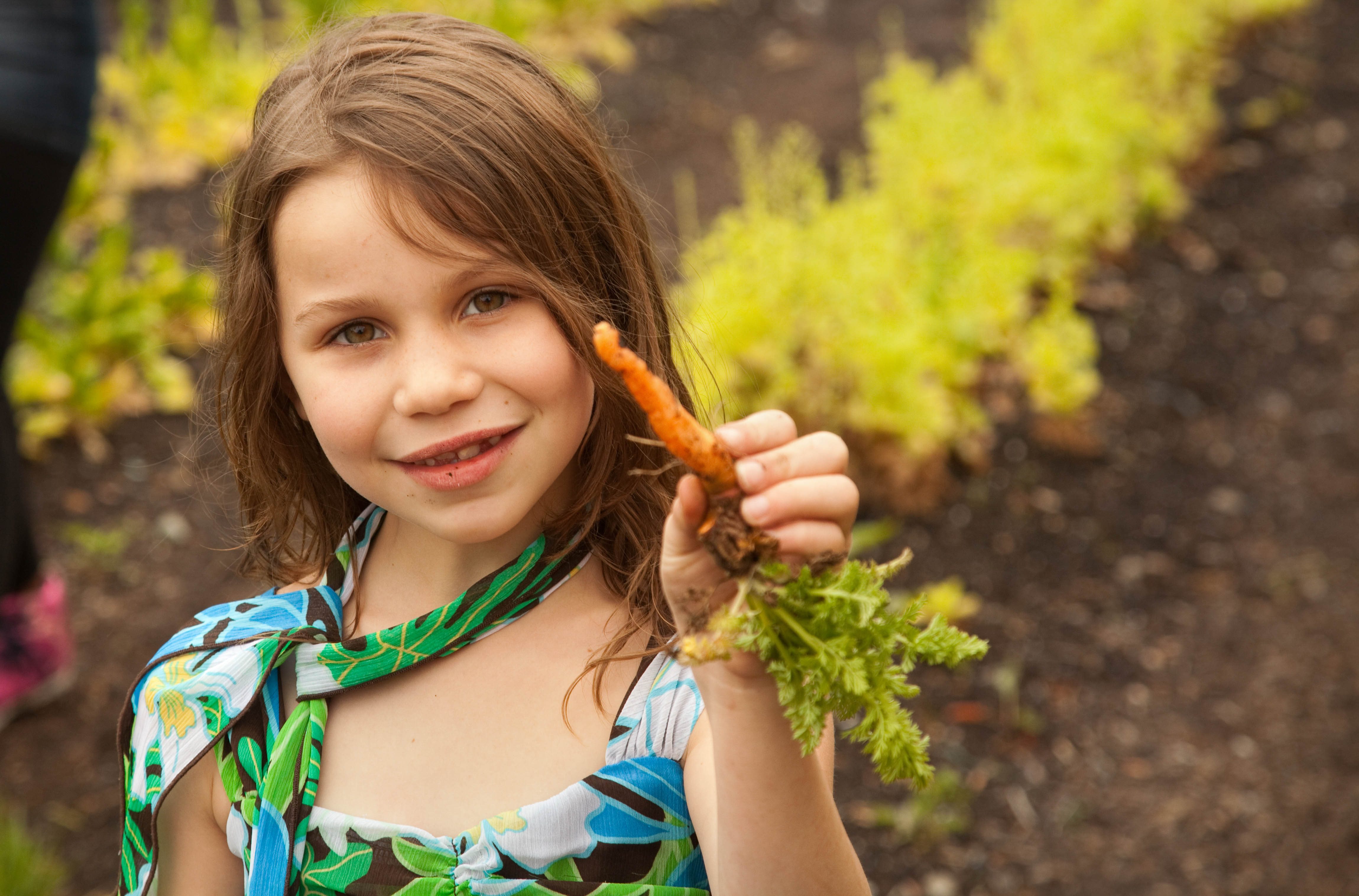
Students can learn STEM by growing and studying in gardens
STEM Learning in the Garden
As teachers and administrators search for ways to improve student performance, they should look in the garden.
Learning in the garden is real, alive and surprising. Here discoveries of “bugs!” and “worms!” are shouted out and children run to the discoveries. Suddenly the questions aren’t coming from the teacher; they are coming from the students eager to observe, learn and understand their world.
The gold of classroom learning is the“Ah Ha” moment when the student makes a discovery or connection.
The garden is full of “Ah Ha’s” but it also has the “Umph” moments of exercise, the “Yum Yum” moments of tasting and the “We Did It!” moments of accomplishment. While say we are growing a garden, we are really growing children who become stronger through exercise, healthier through better diets, and more powerful with their learning and actions.
Dig out one shovel of soil and you have a lesson in geology, archeology, chemistry and biology.
Why is the soil here different than the soil two feet down or over by the wall? What is this rock and how was it made? Where did that piece of tile, metal or root come from? What was here before? Can you see the roots, insects and larvae in the soil? What do they consume? How does water percolate through the soil?
What do plants need from the soil?
Here are questions about chemistry, biology and botany. How can we test and amend the soil to provide the right combination of nutrients for this plant? What crops and rotations can replenish the soil?
What will we plant?
Here are questions about how we use and value plants. Where did these plants come from? How have they been used for foods, medicines, spices, teas, baskets, building materials and clothes and dyes? How foods become part of our cultural identity. How we can grow and distribute food to create healthier families, profits or materials?
Where will we plant?
Here are questions that involve the rotation earth around the sun, an understanding of the soil, drainage, sun exposure, the needs of particular plants, the design of the garden and paths. The garden is a world that our children can help build.
How will we tend the garden?
Here are questions about the needs of different plants, different seasons and different helpers. School gardens are a perfect opportunity to create collaboration among students, parents and teachers as they work together. Who will tend the plants during the summer?
How will we share our produce?
Here are questions of sharing and earning that go to the core of our ethical and economic systems. How much do we give away? Do we sell it? How can we provide nutrition to mothers and newborns so our children grow up without learning disabilities?
Want common core observations and analysis? STEM learning?
In the garden students observe and interact with complex systems:air, water, sun, temperature, soil, plants, insects and animals. What are the needs of our plants and how can we create the right combination of conditions to create better crops? Our children learn to observe, test, create solutions and improve outcomes. Perhaps the best lessons are that a garden is never done and that there is always next year.
Plant a seed and watch it grow.
This simple act reveals the awe of life and our responsibility to care and nurture living things.
Longer Reach of the Teach
Numerous studies show that outdoor education improves test scores for children.
But when you see the bright eyes and smiles of children who are excited by their discoveries and accomplishments you will truly understand the importance of this learning. Students who are bored in class can come alive with the real learning and active work of a garden. You will be amazed at how well your garden will grow your students. This is learning as fresh and tasty as a pea plucked from the vine.

Leave a Reply